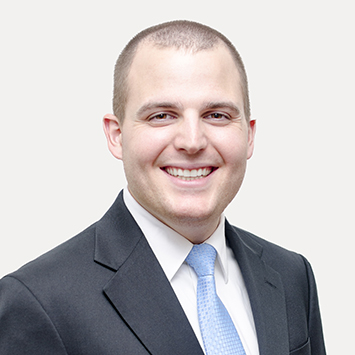Common Financial Errors I See when Coaching Young Physicians
For this quarter’s main article, I decided to make it very practical and useful. I know I often get philosophical and personal when I write these, so this time I am going to stick to quick descriptions of the most common financial errors I have seen lately.
Renewing your IDR repayment plan for student loans early
Currently, student loans are scheduled to restart in September. There is a chance that gets pushed back again though. If they do restart then, and you were on an income-driven repayment (IDR) in March of 2020 when the COVID loan freeze started, your payment in September should be the same as it was in March of 2020. The earliest anyone on an IDR plan is required to recertify their income is March of 2023. For most folks, recertifying early causes your payments to go up, sometimes very significantly.
Having too much cash in checking and savings accounts
The cost of goods and services are up about 8% from this time last year.1 There are worse problems to have than having too much cash, but it is still a large inefficiency. I’ll share an example. I spoke with a young attending physician who had $200,000 in his savings without a purpose for it. He lost about 7.5% of that account’s purchasing power over the last year as he earned .5% interest while the cost of goods went up by 8%. That is a $15,000 erosion of purchasing power. This doesn’t mean you shouldn’t have any money in savings, but it should have a use in the near future.
Responding to unsolicited emails from people you do not know
The most common example I see here is an OHSU resident receiving unsolicited emails from people trying to sell disability insurance. There is nothing wrong with disability insurance, and most residents should purchase a portable policy during training. The issue is that the emails do not provide all the information the physician needs to make an informed decision. Some doctors at OHSU forward solicitations they receive to me. I have never seen one that informs the resident about the GSI program, likely because the sender may have a financial motivation not to mention it. In my experience, the GSI program is the most appropriate option for about 65-70% of the residents and fellows, which is why I meet plenty of doctors significantly overpaying for disability insurance. I also see doctors receive email solicitations to pay for help with their student loans. Sometimes this is an outright scam, and other times it is from a reliable source, but paying is often not necessary as there are free student loan resources available.
Picking a job based on compensation
This is one of the most common topics I discuss with residents/fellows in their last year in training. I cannot emphasize this point enough. Do not pick a job just because it has the highest compensation. First, there are more important things in life than maximizing your earning potential and second, there are often good reasons why that job must pay so much to attract physicians to it.
Having kids, but no life insurance or a will
If you have kids, I believe you have made a two-decade financial commitment to being responsible for launching them into adulthood. Most young parents should evaluate their life insurance options. Also, if you have kids, you need to consider a will. This is a formal, legal document that can state who you want to take care of your kids if something happens to both parents.
Form 8606 as part of the backdoor Roth
This is an error some folks make when trying to complete the backdoor Roth IRA process. If you make a non-deductible contribution to a Traditional IRA, Form 8606 needs to be filed with your taxes. If you do the backdoor Roth IRA process properly, you put your contribution into the Traditional IRA and then convert it to the Roth IRA. This conversion should not be taxable if done correctly, but if you do not complete Form 8606, or complete it incorrectly, you will get taxed.
Paying current medical bills from HSA
I know this might sound odd, because an HSA is primarily meant to be used to pay for medical expenses. However, you can invest the funds in your HSA and use it for healthcare bills much later in life. This is beneficial because the investment growth in an HSA is tax free as long as the funds are used for medical expenses. The only time I recommend using HSA funds to pay for current medical bills is if the only other option is using a credit card and not being able to pay off the balance.
1Consumer price index data from 1913 to 2022: US inflation calculator. US Inflation Calculator. (2022, June 29). Retrieved July 8, 2022, from https://www.usinflationcalculator.com/inflation/consumer-price-index-and-annual-percent-changes-from-1913-to-2008/
5459529 / DOFU 2-2023
